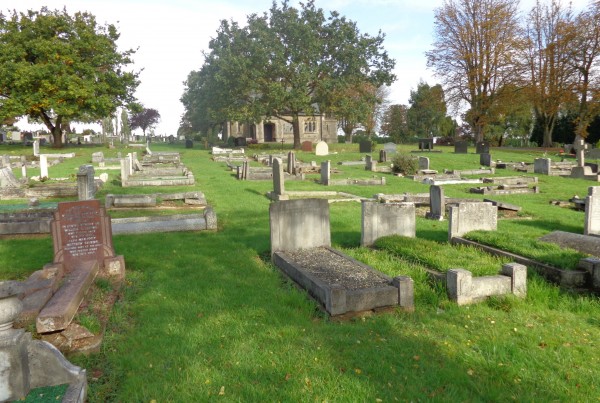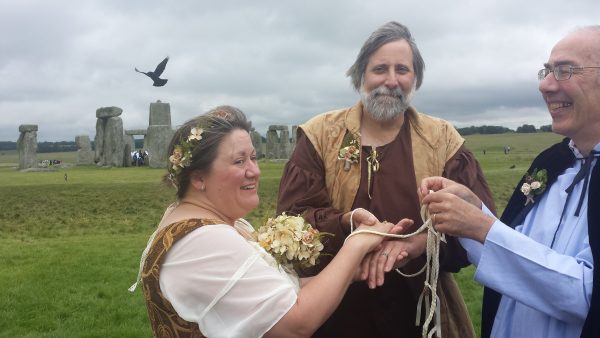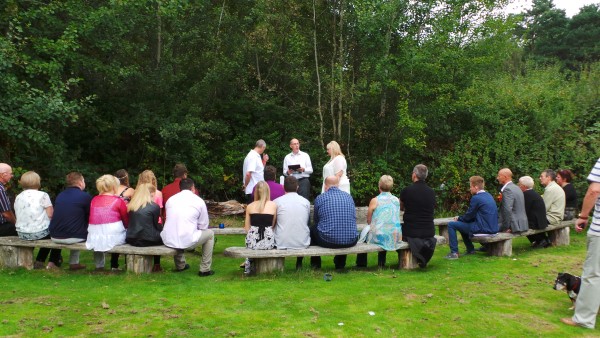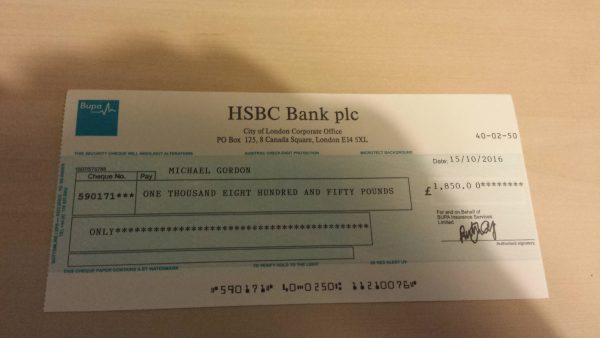by Michael | Dec 19, 2016 | Blog
Last week, we spoke about the wedding count down beginning at least a year before the event. The point of that being to ensure that there is time to make informed choices. It’s also vital not to wait too long, as your chosen suppliers may be snapped up by other people.
You also want to make sure you’re not too anxious and stressed, so by going at it all gently but consistently, you will ensure the ground is covered.
Assuming you’re still on schedule, what else needs to be done, as the big day approaches?
One month before
- Confirm your bookings with all your suppliers
- Collect your wedding rings
- Arrange your final dress fitting
- Hold final fittings for your bridesmaids/pageboys/flower-girls
- Write and practise your wedding vows (if yours is a bespoke civil ceremony) as well as any speeches
- Have a consultation with your photographer so you can ensure your needs are met
- Have a hair and make-up trial run
- Finalise the guest list and seating plan
- Confirm dietary needs with your caterer
- Order currency for your honeymoon
One week before
- Hold a wedding rehearsal
- Compile timings for the day and ensure the relevant people have this (planner, photographer, Best Man, caterer, etc.)
- Check again that outfits are in order
- Pack for your honeymoon
- Assemble an emergency kit for the day (make-up, safety-pins, Paracetamol, sewing kit, plasters)
The eve
- Give the ushers the Order of Service
- Make sure the venue has table plan, place cards, guest book and pens, and, if relevant, decorations
- Collect hired suits/dresses
- Give rings and supplier details to the Best Man
- Lay out your wedding dress, lingerie, accessories etc.
- Get an early night (but set the alarm)!
The day itself
- Allow around six hours to prepare yourself
- Groom and Best Man should arrive at the venue about 30 minutes early
- Check the Best Man has the rings and his speech, messages, and anything else you may ask him to look after for you
If you do manage to achieve all this within the time span suggested, you won’t have to worry at all about arrangements. Instead, you can relax and really enjoy your day. You’ll have deserved it!
by Michael | Dec 13, 2016 | Blog
So you’ve got engaged – congratulations! But don’t sit back! It’s time to start the wedding count down.
There’s more to do than you’ll expect. To keep it as stress-free as possible, I recommend that you start planning at least a year before the event.
If you put things off, you’ll soon find that you’re under pressure – and possibly making the wrong decisions.
Don’t be impulsive, although you should go with your heart to quite a degree. Wherever possible, follow recommendations. Visit suppliers and certainly the venue, so you can get a feel for them. Take the opportunity to ask questions.
Here are some of the things to do:
As early as possible
- Fix your budget
- Decide on the type of ceremony you want (full religious; totally secular (Register Office); mainly religious, non-religious or part-religious (Civil Celebrant))
- Book your venue
- Book your florist, cakemaker, transport, caterers, musicians, entertainers, photographer/videographer
- Book your minister, registrar and, of course, civil celebrant.
- Draft a guest list
- Choose your team (bridesmaids, ushers and Best Man)
- Start looking for your wedding dress
- Organise wedding insurance
Six months before
- Buy your wedding rings
- Buy your bridal lingerie and shoes (and wear them for dress fittings)
- Book a hairdresser and make-up artist
- Choose outfits for the groom, best man and ushers
- Order your stationery
- Book your honeymoon – check passports are valid. Do you need any vaccinations?
Three months before
- Confirm ceremony details (including [celebrant] order of service and wedding music )
- Send out invitations and gift list
- Discuss menu and drinks with caterer
- Have initial dress fitting
- Buy gifts for Best Man, ushers and bridesmaids
- Plan your hen/stag parties
My next blog will take you through the month before your wedding, so don’t miss it! However, if you can’t wait, why not e-mail me and I’ll gladly send you my Wedding Countdown Checklist, which will tell you everything in one document?

by Michael | Dec 5, 2016 | Blog
The “Funeral Service Times” carried an article about SunLife’s 2016 “Cost of Dying” report. It emerged that funeral costs rose by 5.5% over the year. Apparently, the average cost of a funeral came to £3,897. However, if you factor in probate, flowers and a headstone, that sum rose to £8,802 per person.
It was even worse if you live in London. On average, a funeral here costs £5,529.
The best place to save some money is Northern Ireland! The average cost there was “only” £3,277.
Some 1,500 people were surveyed between April and May 2016. Many of these voiced their concerns at the outlay. Some 13% of those who had organised a funeral in the last four years said the expense had hit them hard. Of those people, 10% had had to sell belongings to finance the funeral, and 24% had deferred the payment by using a credit card.

Insure yourself
Many Funeral Directors offer a funeral plan. Simply expressed, you can pay for your funeral in your lifetime, and this will prove a good investment (unless you die before the costs have had time to rise!). They’ll be happy to talk to you about this.
Take control
An incredible 1% of those who had organised a funeral in the last four years said they were fully aware of the deceased’s wishes. 59% knew (at least) whether cremation or burial was the deceased’s preference. 37% knew which funeral director had been chosen. 22% had no idea what the deceased might have wanted at all.
Death is one of life’s few certainties, but it is remarkable how little we Brits discuss it. We feel uneasy talking about it, let alone, planning for it.
As a result, as we have seen, there can be financial issues when a loved one dies. More than that (judging by the above statistics), 99% of us have to make decisions about a loved one’s funeral without knowing if that is what the deceased would have wanted.
According to 95% of those who had to organise a funeral, knowing the preferences of the deceased made things much easier. However, almost of third of these have done nothing about their own end-of-life plans.
A solution
Many celebrants offer the possibility to write a personalised funeral during your lifetime. They will normally come to your home, talk over the various choices open to you, question you (in order to draw up a eulogy), give you a quote and then, if you accept, send you a draft ceremony for you to approve. (They can also conduct the ceremony on the day – availability allowing – if that is what you instruct.)
Note that there is no legal compulsion for your instructions to be followed. What you can do is to make sure your next-of-kin know your feelings (and can locate the service that has been written) – and it’s a good idea to discuss your feelings and intentions with them first. For example, if you opt for a green burial, you may not realise that there will be no memorial of any kind for them to visit.
If you do want to take control and also help your next-of-kin, have a word with a funeral celebrant. With good advice, he can put your mind at rest.
by Michael | Nov 29, 2016 | Blog
Why should anyone consider holding less traditional receptions?
Remember that, nowadays, you are free, if you wish, to book a celebrant who can create and conduct a bespoke wedding ceremony for you. It may still be traditional, or partially so, but you have the choice. And it’s your big day.
In the same way, you don’t have to follow tradition for the reception, if you prefer not to.
To repeat, it’s your big day. Even if someone else is financing the reception, you should be part of the organising. Your wedding should be your once-in-a-lifetime event (well, not if you’re Zsa Zsa Gabor or Elisabeth Taylor, I realise!).
You should have the guests you want, but, in order to keep them happy, you may have to re-organise the event a bit.
Flexibility
Bearing in mind, the age-range of your guests, some changes could work to your advantage.
There are certain things that normally go together, but don’t have to stay that way. You expect toasts and speeches to come with dinner, probably near the end. But do they have to?
The cake-cutting doesn’t need to come at the end of the night (when people are tired or may have already gone home).
Just a thought (or two)
What about this? As soon as your guests have come in from the ceremony, have the first dance then. People are full of love and joy, and may be particularly receptive to this.
You could follow this by tossing the bouquet (if not already done).
Why not have the toasts after each of these activities?
When you sit down, the bride’s father can deliver his speech. Welcoming everyone at the beginning is logical. Moreover, he may well be nervous. This way, he can get the speech out of the way early on, and actually enjoy his meal!
Having the groom’s and Best Man’s speeches after the main course, but before dessert, is wise. People are no longer ravenous (so may concentrate!), but probably not rolling drunk either. The cake-cutting can take place after the speeches. That way, all the necessities will have been covered while people are still in the mood for them.
If you are working with a photographer/videographer or, indeed, a wedding planner, discuss all this in advance. They will be fine with it, as long as you don’t spring it all on them at the last moment! (One consideration is that if the photographer doesn’t have to stay till the end, because the main activities have already taken place, he may cost you a little less.)
Once all these activities have been dealt with, you too can relax, as there won’t be a schedule to adhere to. You can just concentrate on dancing with your spouse and having a wonderful time!
Doesn’t that make sense?

by Michael | Nov 21, 2016 | Blog
So you’re not going down the church route for your wedding? Maybe you’re not sure about holding your ceremony in a restaurant or hotel? There’s good news! There are less traditional venues available, and they can be wonderful!
Whereas you might choose the Queen Mary II (if you have a large budget!) or The Shard, your back garden might lend itself perfectly to your event. You may prefer to hold the event up Mount Snowdon or in a local aquarium. The London Eye may beckon, or else the seashore. Perhaps a medieval barn. Maybe a foreign clime attracts …
I know of people who have celebrated a naturist wedding, held weddings underwater and even while abseiling down some monstrous crag. (Quite relieved that I didn’t get to conduct those, actually!)
The world is potentially your oyster!
Advantages
Freedom to choose a place that means something special to you is a reason to go a little less traditional. You may also like the opportunity to select a venue that reflects your personalities. That could be a prehistoric site, a barn or a battlefield for history buffs.
You will almost certainly be choosing premises that don’t hold a licence for weddings. What that means is that you will have to go to the register office to get legally married first. You can go down together (make an appointment first!), in jeans, with two witnesses and get legally married a day or two – or even an hour or so – before the ceremony of your choice. Then you can really relax and enjoy your ceremony. You are secure in the knowledge that the legal bits have been dealt with, and now it’s all about celebrating!
Disadvantages
Depending where you choose, you may have to organise most things yourself (or pay a wedding planner to do so). This may include arranging the catering and decorations, PA system, signage, entertainment. Then there’s the celebrant, photographer, florist, and the like, which you’d expect wherever you hold your event.

Outdoor ceremonies?
A lot of people like the idea of an outdoor venue. Yes, you have to take into account logistics and health and safety, but you can let yourself be bounded only by your imagination. Well, by practicality too.
You can select a place that really means something to you. For example, I have conducted ceremonies at Old Sarum (Iron Age castle), a canalside grove and at Stonehenge. The atmosphere was unique and made the event even more special, and that was where the couple absolutely wanted to be.
Things to consider
Don’t forget to ask permission from the relevant landowner before you start organising things.
Weather is going to be a major unpredictable factor, especially in Britain!
Considerations should include:
- availability of protection from the elements (sun, rain, cold and heat),
- accessibility (mud, car parking, signage to the relevant area, distance to the reception and arrangements for getting there),
- health and safety (no trailing wires),
- seating (for, at least, disabled guests),
- toilets,
- PA system,
- potential ambient noise,
- warning/inviting neighbours, etc.
- catering (including providing water on hot days).
So don’t go rushing into this without thinking it through. There can be nothing more magical than a beautiful ceremony in the most wonderful setting – but are you sure you can achieve the results you want?
Given time and sensible planning, you really can achieve your goals. Just be aware that it will call for hard work.
However, the rewards may be so stunning …

by Michael | Nov 15, 2016 | Blog
A cautionary tale. It’s about a marriage that was not to be!
In September, I received an e-mail from Ukraine asking if I was available in January to celebrate a London wedding. They had a date, expected guest numbers and a start time – yet, no venue (something I immediately thought odd). Moreover, my correspondent claimed to be called Edward (although his address didn’t quite match this). Furthermore, even though the implication was that he was English-speaking, he clearly wasn’t.
The bride (called “Marry” – more than odd, I thought) was supposed to be his cousin and Edward claimed the couple were English. Anyway, Edward agreed my terms, so I e-mailed my contract for the couple to sign. This was returned with a printed “X” rather than any name. I sent it back and asked for an actual signature, but this was ignored.
I asked for the couple’s details, and I received some. I have not ascertained whether these were genuine. (The address was, as I happen to know, on Kiev’s main avenue. This was the equivalent of London’s Oxford Street, but I guess that people might just live there.)
I told Edward that the payment I received must be net of bank charges or commissions etc. He said he had an uncle over here, who would send me a Sterling cheque, so this would obviate that problem. Promise followed promise, but no cheque came.

Finally, after about a month had elapsed, another e-mail came through promising me a cheque for £1,850. (Rather more than I charge for a ceremony!) I wrote back at once, telling him I was expecting £300 only (for deposit plus a bit). However, the cheque for £1,850 arrived the next day, mailed from England. Edward e-mailed, saying there had been a mistake and the sum was for me AND the photographer. I should cash the cheque and, when it cleared, pay the photographer, whose details he would send me.
This might just have been plausible, but the cheque was a company one from BUPA (bona fide, I am sure), but signed with a stamp, not a hand-written name.
I suspected that the money had been taken illegally from BUPA. Presumably, the “photographer” I was to pay over £1200 to was actually Edward or an associate.
I shared my opinions with the police Fraud squad, and they told me to ignore all future communication with Edward, and they would share their findings with me in due course (in, at least a month, possibly). I had two dismayed e-mails from Edward, and then nothing since. (I have not heard from the Fraud squad, but am now sure that my suspicions were correct.)
A sad story, and I’m only relieved that things didn’t turn out worse than they did. I wasted time on, and was disappointed in, a potentially valuable order. But who knows what I might have found myself immersed in, had I cashed the cheque and paid the “photographer”!




